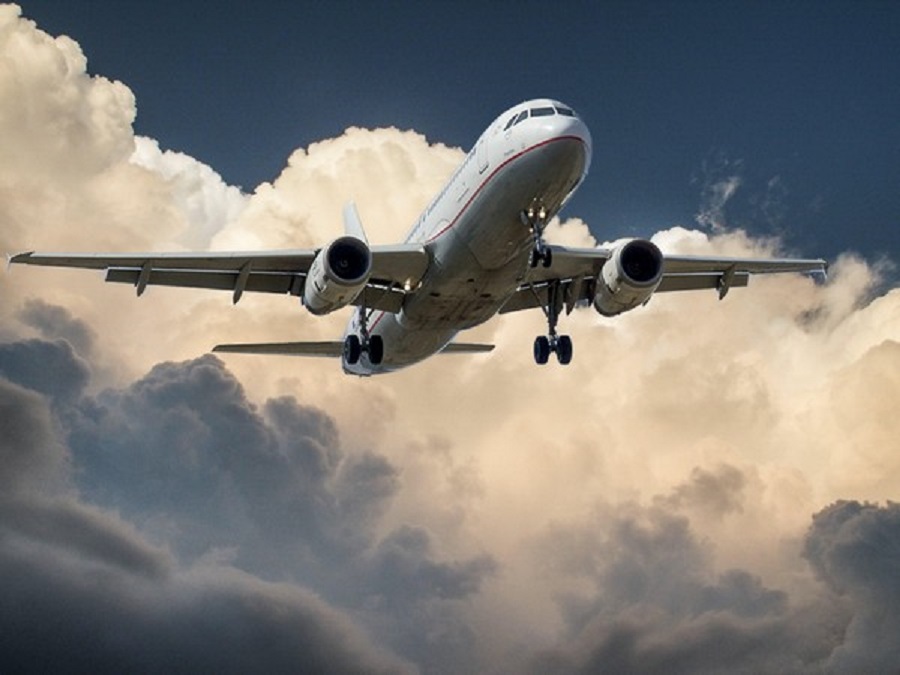 English
English

In a bid to address severe airspace congestion at Mumbai Airport, the central government has imposed flight restrictions, caused by various factors, including non-scheduled flight operations during peak hours. Read further on Dynamite News:

New Delhi: In a bid to address severe airspace congestion at Mumbai Airport, the central government has imposed flight restrictions, caused by various factors, including non-scheduled flight operations during peak hours.
The Ministry of Civil Aviation revealed that, despite the escalating air traffic post-pandemic, the airport had failed to take sufficient measures.
Read this also: New beginning in political career: Ashok Chavan announces decision to join BJP
The ministry said that the airport operator did not take steps to streamline and regulate the air traffic movements to resolve this problem, therefore forcing it to step in the matter.
"The airport operator, being the slot provider as well as the manager of slots for the airlines, should have proactively taken steps to streamline and regulate the air traffic movements, to resolve this problem. However, since no such action was initiated by them, the Ministry of Civil Aviation has had to step in," it said.
The airport is operated by Mumbai International Airport Ltd (MIAL).
The ministry said that the airport "suffers from congestion and excess capacity on its runways, which inadvertently leads to air space congestion, where flights are forced to hover over the city for a long duration of around 40-60 minutes."
The ministry further said that considering that an aircraft on average consumes 2000kg of fuel per hour, such a long duration of circling time causes significant wastage of fuel for the aircrafts ranging from 1.7 kiloliters of jet fuel (approximately . costing around Rs 1.8 lakh) for a 40-minute circling time in air to around 2.5 Kilolitres of jet fuel (approximately . costing around Rs. 2.6 lakhs) for a 60-minute circling time.
"It is to be understood that such an increase in fuel costs would eventually be borne by the consumers. This also has a cascading effect on the efficiency of airports operations leading to a longer wait time, inordinate delays, affecting both passengers and airlines adversely," it said.
In order to remedy such air space congestion, an analysis was conducted by Airport Authority of India (AAI), which found that air traffic permitted per hour during the 6 hours of High Intensity Runway Operations (HIRO i.e. from 8 am to 11 am and 5 pm to 8 pm) was almost equivalent to air traffic permitted per hour during the remaining 18 hours of the day.
In addition to the above slots, general aviation and military aircraft operations were also allowed without any restrictions.
"Besides, owing to presence of transverse runways, operation of non-scheduled flights further increases air traffic congestion during peak hours," it said.
The restrictions reduce air traffic movements from 46 to 44 per hour during HIRO periods and from 44 to 42 per hour during non-HIRO periods. General aviation aircraft operations are also limited during HIRO periods. The government expects Mumbai International Airport Limited (MIAL) to promptly ensure the cooperation of all airlines with these prescribed restrictions.
The causes of congestion were identified as excessive slot distribution with limited time margins, non-adherence of slots by airlines, and non-scheduled operations during peak hours. While the airport is operating at full capacity, the government emphasised that the airport operator should have proactively taken steps to regulate air traffic movements.
"While Mumbai Airport is running at its full capacity, it was found that the persistent congestion was caused due to, excessive slot distribution with limited time margins on behalf of the airport operator, non-adherence of the slots on behalf of the airlines and non-scheduled operations during peak hours," it said.
It further said that this action has been taken in the greater public interest from the perspective of airspace safety, efficiency of operations, and passenger satisfaction.
"The Government of India, realises that it needs to step in to strike a balance between the needs of both airport operators and airlines while ensuring that passengers have a fulfilling experience while flying from Mumbai Airport," the ministry said. (ANI)
No related posts found.